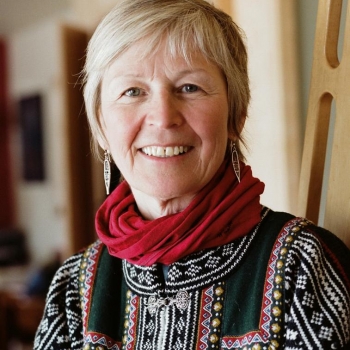Linda Chamberlain is an epidemiologist, author, professor, dog musher and founder of the Alaska Family Violence Prevention Project. She is also a translator, determined to bring the “aha” moments of brain science and trauma to everyone in compelling and relevant ways. That might mean posters about ACEs hung in outhouses in a rural Alaska community.
“We have to be really flexible on how we define training and education,” she says. “It can be a conversation at church…We have to meet people where they are so they can see how the science is relevant to their everyday lives and their kids and their families.”
For the past decade, Linda’s work has focused on creating tools, such as the “Amazing Brain” series of booklets, that combine the latest science with practical strategies that can be used by parents, teachers, early childhood educators, home health nurses and others. Her work in rural, isolated and impoverished communities has taught her about “the diversity of adversity”—that is, factors such as food scarcity, climate change, forced assimilation and poverty, along with the types of abuse and neglect included in the original ACE study.
As a scholar with the inaugural Fulbright Arctic Initiative, Linda is focusing on family and community resilience, which she believes are key to any individual’s ability to thrive. “We need big-picture, two-generation efforts,” she says. “Our capacity for change is huge.” What excites her about the MARC project is the chance to invest in communities, build on what they have learned and carry the work forward into the next generation. “I’ll be working with leading experts in the field, each bringing a different layer of expertise, and that’s what collective impact is all about.”
As a “shoe-leather” epidemiologist—that is, one who works at ground-level, interacting with communities as living “laboratories”—Linda also believes any message about ACEs or trauma must be twinned with a sense of hope. “We need to always be aware of the potential for healing, to identify strengths and not to see ACEs as destiny.”
